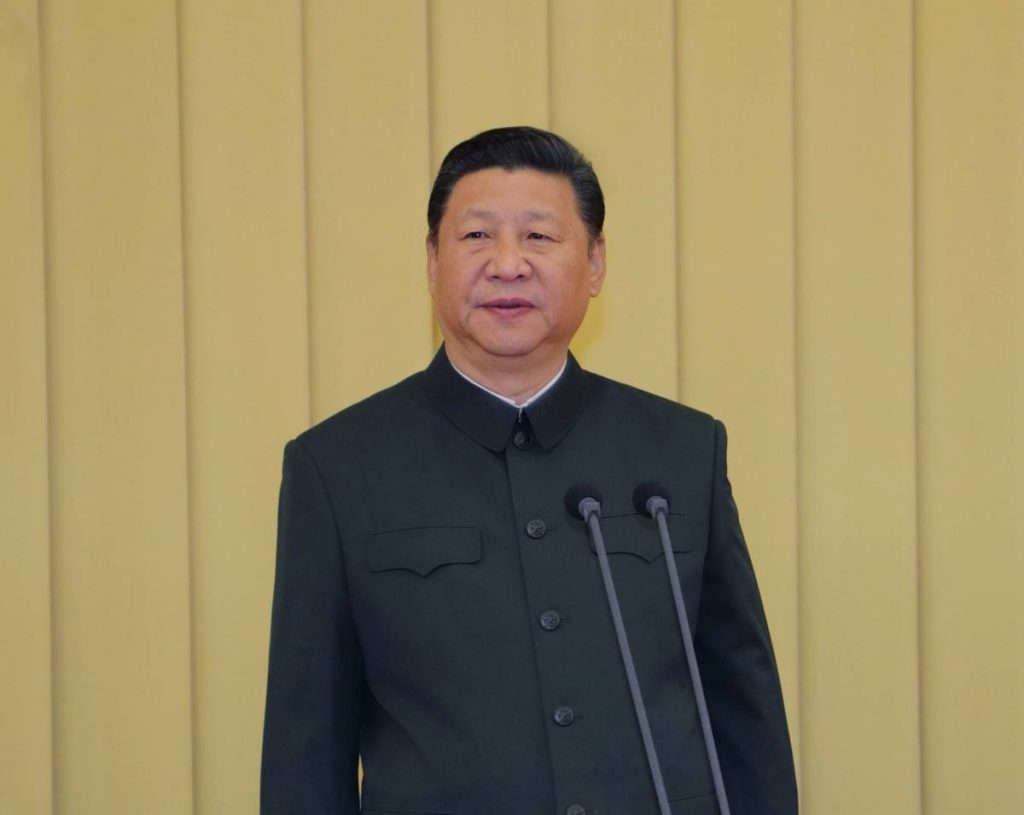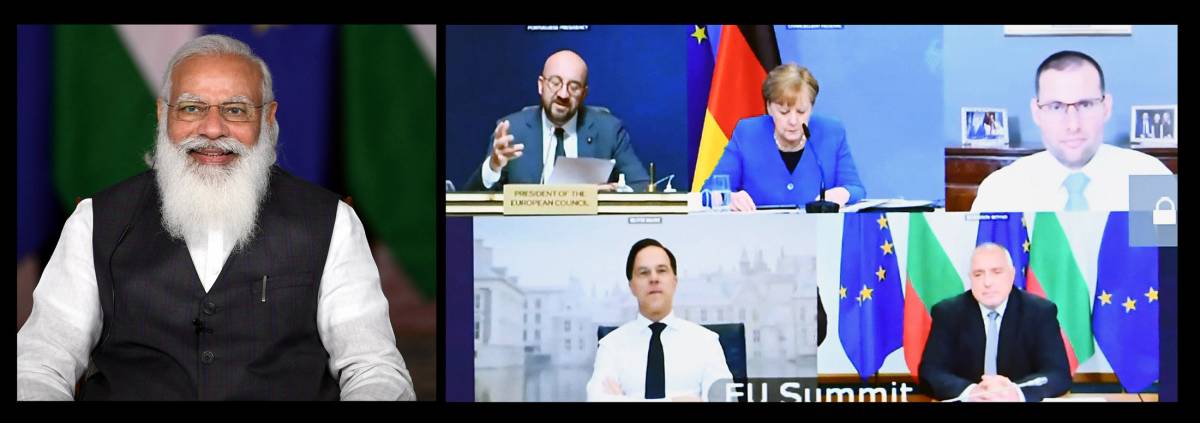Brussels and Delhi said they want to begin a new phase in their relationship, implementing the key points of the EU-India 2025 Roadmap…reports Asian Lite News
The tug-of-war with China has accelerated the European Union’s (EU) efforts to reinforce its strategic partnership with India.
From May 3 to 5, the Group of Seven Foreign and Development Ministers’ Meeting took place in London, where discussions were held on some of the most critical issues that have been shaping the international context recently.
Besides the G7 members themselves – Italy, the United States, Canada, Germany, the United Kingdom, Japan and France, along with the high representative of the European Union – other countries’ leaders were invited to the event as guests. Among them were India, Australia, South Korea, Brunei (as the current chair of the Association of Southeast Asian Nations) and South Africa, reported Asia Times.
Federica Russo, who writes about business and geopolitics for international media outlets and think-tanks, in an opinion-piece in Asia Times remarked that the composition of the guests’ crowd suggests that the G7 members have accepted the relevance of “looking East” to help them comprehend, analyse and deal with current global dynamics.
On May 8, a virtual EU-India Leaders’ Meeting took place with the goal of resuming free-trade negotiations, launching a connectivity partnership, and cooperating in the fights against the pandemic and climate change, wrote Russo.
While the EU was represented by the 27 leaders together with European Commission President Ursula von der Leyen and European Council President Charles Michel, India was represented by Prime Minister Narendra Modi.

Responding to the dramatic surge of Covid-19 cases in India, the EU demonstrated its solidarity, mobilising Euro 100 million to supply oxygen, ventilators and medication, welcoming a stronger contribution to the production of vaccines, and inviting New Delhi to participate in working toward an international treaty on pandemics within the framework of the World Health Organisation.
But the May 8 meeting also shone a spotlight on how the EU and India will support private investments in high-standard physical infrastructures across several sectors, even in other countries in Africa, Central Asia, and the Indo-Pacific region, as alternatives to those pushed forward by China’s ambitious Belt and Road Initiative, reported Asia Times.
In this context, Brussels and Delhi said they want to begin a new phase in their relationship, implementing the key points of the EU-India 2025 Roadmap, whose role was already emphasized last year during the 15th EU-India Summit.
All in all then, dynamics in the geopolitical arena are making Europe uncertain terrain for China. Beijing has clearly become its own enemy in Europe, and leaves the same door open to others when it refuses to address significant issues.
This approach, in the long term, is only going to intensify friction between Beijing and Brussels. It will be interesting to see how other players, especially India, take advantage of the situation to push back against the sphere of influence that, over recent years, China has been expanding and to take a much more active role in the region, and beyond, wrote Russo.
Moreover, the discussions during the meeting ranged widely, but China certainly occupied a central role. The key points on which the ministers agreed will inevitably impact the trajectory of the relations between Beijing and the G7.

First, concerns have continued to arise around Beijing’s treatment of the Uyghur minority in Xinjiang.
Second, Hong Kong was a hot topic, with the G7 ministers discussing its level of autonomy and the importance of upholding its judicial system in order to avoid the transfer of cases to the mainland.
Last, dynamics in the East and South China Seas constituted an additional source of uncertainty, with the ministers highlighting their opposition to any unilateral actions that could undermine the region’s stability through militarization, coercion and intimidatory moves across the Taiwan Strait, reported Asia Times.
The European Parliament recently passed a motion to freeze discussions on the EU-China Comprehensive Agreement for Investment (CAI), an important pillar that gained special attention last December, when the parties made progress in negotiations to create a level playing field for investors and to support trade relations.
Nonetheless, in March this year, after the EU imposed sanctions against some Chinese officials and Chinese entities in the complex context of alleged human-rights abuses in Xinjiang, Beijing responded by targeting European officials, academics and diplomats who were accused of “spreading false information” and thus prohibited from entering China and its Special Administrative Regions.
Countries such as many of those that belong to ASEAN are destined to increase their relevance on the global scene. Consequently, Western actors must expand the level of engagement with them, reported Asia Times. (ANI)
ALSO READ: UK’s most wanted fugitive arrested in Dubai

Leave a Reply